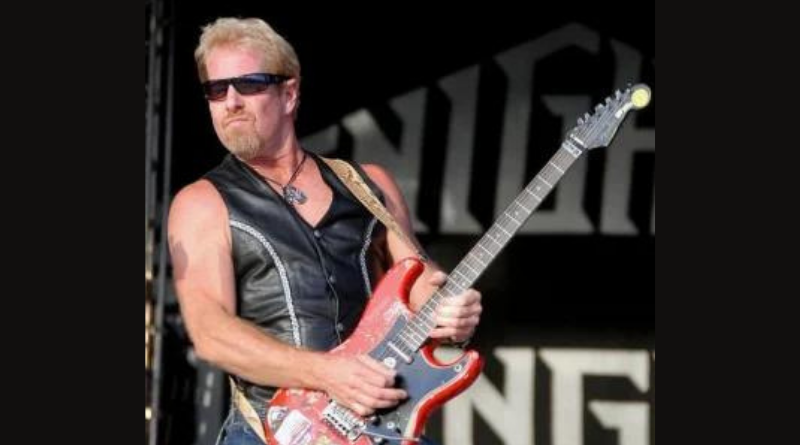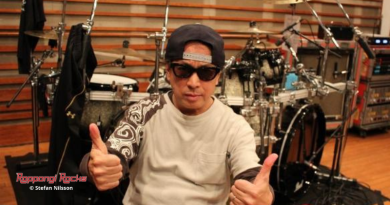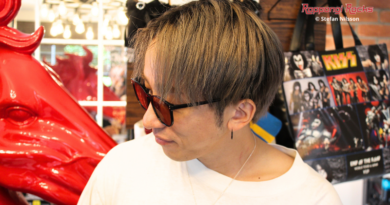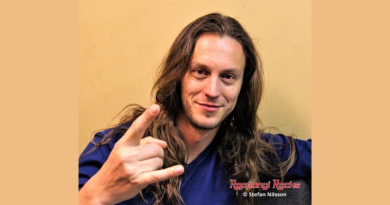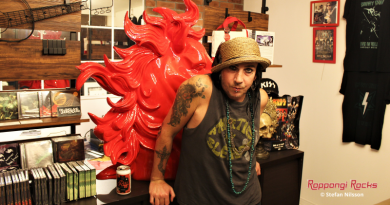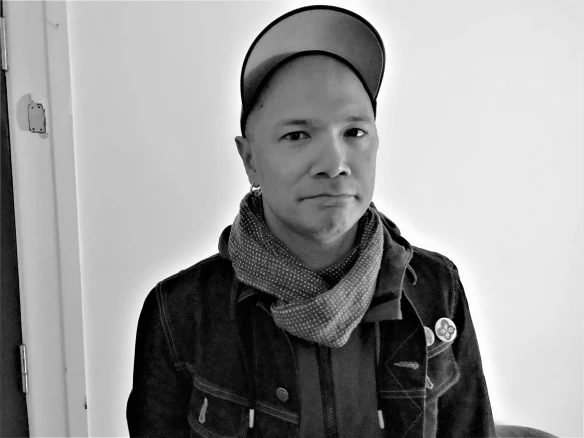Interview: At home with Brad Gillis | A chat about Ozzy, Night Ranger and Japanese live albums
While stuck at home in the US, Brad Gillis, co-founder and guitarist of Night Ranger, checked in with Roppongi Rocks’ Stefan Nilsson to talk about his time in Ozzy Osbourne’s band, the importance of MTV back in the day, recording live albums in Japan and what’s coming up for Night Ranger.
You and Jack Blades started playing together in 1978. How do you keep the creative hunger and personal chemistry going with a musical partner for that many years? “When Jack and I got together in the band Rubicon, we hit it off from the start. It was a great short run releasing two records and performing March 18th 1978 at The Cal Jam 2, playing in front of 300,000+ people. It was the highlight of my career! Forming Night Ranger around 1980, we created our sound and had an illustrious touring schedule throughout the 80s. Keeping everyone in check and being good friends led to a healthy creative career. We’re still going strong and starting a new Night Ranger record soon with ideas still flowing.”
In the early days of Night Ranger, how important was MTV in breaking the band and the support you got by having your music videos played on the channel? “MTV was such a great avenue for Night Ranger. We had just finished a video for ‘Don’t Tell Me You Love Me’ and hoped the new MTV channel would embrace us. With a 24/7 on air format, MTV didn’t have enough video content to fill all day, so they played our video 25 times a day! It was great for us as it plastered our faces all over MTV and people would recognise us when touring the world. Too bad MTV has changed but we still do videos every record release and send through all social media outlets.”
Night Ranger has released several live albums recorded in Japan. What is it about Japan and Japanese fans that make Night Ranger and many other bands record live albums here? “We have made Japan a regular stopping point when releasing a new record. The fans have embraced us and all shows have been sold out. We’ve noticed the fans still love classic rock. After us listening to Cheap Trick’s ‘Live at Budokan’, we always envisioned recording a live show in Japan. I think we’ve done three or four live recordings in Japan, all with good success. We’ve played over 50 shows in Japan and can’t wait to head back over soon.”
In 1982, you did the “Diary of a Madman” tour as guitarist in Ozzy Osbourne’s band. It was an emotional time with Randy Rhoads’ sudden death, the coming and going of Bernie Tormé and Ozzy drinking heavily at the time. What are your memories from that tour? “I have so many great memories touring with Ozzy and some not-so-good times. It was a tough situation for me dealing with the band’s emotions of losing the great Randy Rhoads and the tough fans I had to win over. I remember messing up on one song the first show. Sharon reminded me the second show saying ‘Bradley, you’re doing a great job but tonight. DON’T SCREW UP!’ After two weeks on the road, we performed a live broadcast in Memphis, Tennessee that was aired throughout the country. This was a turning point in my touring with Ozzy. I played well that night and the fans started to embrace me till the end of my tour.”
Your only album with Ozzy was “Speak of the Devil”, a double live album recorded in New York City in September 1982 and consisting of only Black Sabbath songs. It became a cult classic and a big fan favorite, but the circumstances of how the album came about were far from ideal. What are your memories from that recording? ”I remember Ozzy had to complete one more album for the record company and he decided to do a live record. The band went to New York to rehearse older Black Sabbath hits for our two night stint at The Ritz. We spent five days and after did our shows. It was very tough as there were no band overdubs on ‘Speak of the Devil’ and we had just learned the material. Luckily they had two nights at The Ritz to pick out the best performance. I remember coming up with a great stereo guitar sound for those gigs. I still get great compliments on ‘Speak of the Devil’ and still sign those albums at Night Ranger meet-and-greets.”
As a musician do you play differently in different situations: as a solo artist, as a Night Ranger band member or when you’ve been part of backing bands for other artists? “I approach my solos the same way with any artist. I was lucky enough to install one of the original Floyd Rose tremolos back in the late 1970s. I started to define my style back then. Many hours at home practicing different ideas using the Floyd led me to record different sounds that can be heard on ‘Don’t Tell Me You love Me’. I remember banging on my guitar one day and getting this cricket, warble sound. Also, I started bring harmonic notes up to a crazy vibrato wiggle. With so many great guitar players in the world, I wanted people to recognise my style from one listen.”
What do you remember from the charity project Hear n’ Aid in the mid-80s? How was it possible to get things done without fistfights with so many rock stars coming together on one song, “Stars”? “Everyone got along great at that gig. It was so much fun for me to be part of a great charity and hanging out with all the fantastic musicians. Ronnie James Dio kept it all together and we all had a blast. Another thought was how to stand out on my solo, so I implemented my whammy harmonics on my solo. The big gang sing along for the chorus ‘We’re Stars’ brought me chills. Everyone embraced the whole session with class.”
What are your thoughts on the future of live music now that most gigs and tours have been halted and seriously impacted musicians’ livelihoods? “This has been a tough situation for Night Ranger and all live performers. We were going to have our best year since the 80s with 100 shows booked with a 40-show run with Sammy Hagar, Whitesnake and Night Ranger. I see no real future of getting back to normal until a cure is made. With a home studio, I’ve been staying busy writing TV music for placement and finishing my solo record. I’ve created a music site called www.musicalmansion.com where companies can hear all my different styles. Things are slow but I see the future picking up soon.”
You have some serious pedigree in the rock music business. But you have also done other work, such as music for TV shows and computer games. Is it all good fun or do you prefer playing live music? “Of course I miss performing live but to still be a part of music creation drives me through the days. I’m one of the lucky ones to be able to work from home. I hooked up with ESPN back in 2000 and that started my music placement career. I’ve placed over 400 tracks in 20 years. I’ve always done music for a living and now I’ve created a few music-related TV shows that are getting interest. When things finally open up, I’ll have a treasure trove of content for the masses.”
What’s next for Night Ranger? “We’re starting to pass around new material for our new record on the Frontiers label. Everyone has their own home studios so it’s easy to pass around new songs. Of course, we’d all love to get together in one room to write new material but the situation does not allow this for safety reasons. Hopefully, we’ll have a new record released early 2021 and we can head back to Japan!”

